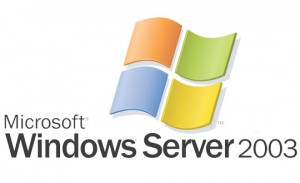
The End of Support for the Windows Server 2003 family of products is July 14, 2015. On that date, all support for Windows Server 2003, including R2, will cease. In light of that, now is the time to make your plans for your migration to Windows Server 2012 R2 Datacenter, Microsoft Azure, as well as Microsoft Cloud Services like Office 365.As a part of normal product lifecycles and to accommodate the shift towards modern technology and mobility, Microsoft will completely end support for Windows Server 2003 on July 14, 2015. Security patches and updates will no longer be available after that date. This Alert from the Department of Homeland Security indicates the seriousness of this event, and Microsoft encourages all businesses to carefully evaluate a migration plan:
| “Research from IDC confirms that businesses should thoughtfully consider using this moment as a starting point for the shift toward modern technology. We think customers should take advantage of this deadline and see it as an opportunity not only to move forward to a newer version of Windows but also to modernize and prepare for the next generation of computers. Hybrid and public clouds are important components of next-generation IT.” Source… |
End of support means:
- No updates
37 critical updates were released in 2013 for Windows Server 2003/R2 under Extended Support. No updates will be developed or released after the end of support. - No compliance
Lack of compliance with various standards and regulations can be devastating. This may include various regulatory and industry standards for which compliance can no longer be achieved. For example, lack of compliance with the Payment Card Industry (PCI) Data Security Standards might mean companies such as Visa and MasterCard may no longer do business with you. Or, the new cost of doing business may include paying catastrophic penalties or astronomically high transaction fees. - No safe haven
Both virtualized and physical instances of Windows Server 2003 are vulnerable and may not pass a compliance audit. Microsoft Small Business Server (SBS) 2003 servers are also affected. Staying put will likely cost more in the end. Maintenance costs for aging hardware will also increase. Added costs will be incurred for intrusion detection systems, more advanced firewalls, network segmentation, and so on—simply to isolate Windows Server 2003 servers.
Many applications will also cease to be supported, once the operating system they are running on is unsupported. This includes all Microsoft applications.
Consequently, now is the time to act. You must start planning migration now. Servers may still be running Windows Server 2003/R2 for a number of reasons. You can use these reasons as discussion points regarding:
- Perceived challenges of upgrading applications
- Presence of custom and legacy applications
- Budget and resource constraints
Among other possible resources, you may take steps to safeguard your business and make migration a priority with these helpful links:
